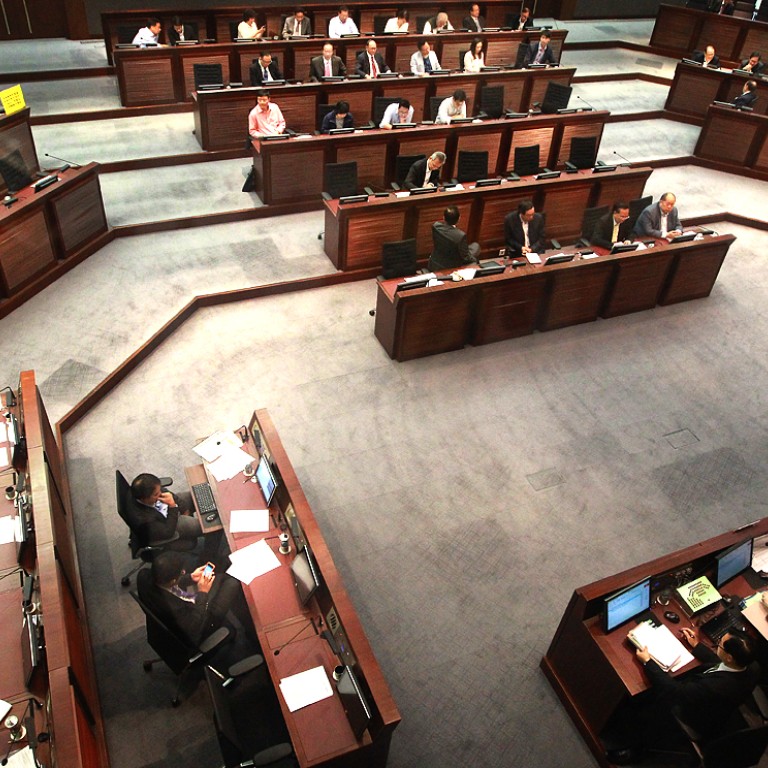
Little political consensus on how a party finance law might work
After huge donations from Jimmy Lai came to light, reformers are again seeking more transparency - but few politicians are willing to embrace it
Media mogul Jimmy Lai Chee-ying's multimillion-dollar donations to pan-democrats have rekindled a decade-long debate on whether Hong Kong needs a new law to make political parties' financing more transparent.

"The law would have a huge impact and it would be tough to sort out all the details in a short period of time," said Wong Kwok-kin, a lawmaker with the Federation of Trade Unions.
He said he did not object to the law, but added that regulations for individual lawmakers should be enforced before new ones were introduced for parties.
Democratic Party leader Emily Lau Wai-hing said she was worried revealing the details of political donations would deter people with mainland business interests from contributing to the party.
The debate over the so-called party law dates back to 2001, when Michael Suen Ming-yeung, then secretary for constitutional affairs, said the administration was studying the feasibility and desirability of introducing such legislation.
His successor, Stephen Lam Sui-lung, announced a year later that the government had decided it was not the right time to introduce the law.
Under the current law, political parties are registered and regulated under the Companies Ordinance and are not required to disclose their donations' origins.
In April, Zhang Xiaoming , the central government's liaison office director, raised some HK$25 million for the Democratic Alliance for the Betterment and Progress of Hong Kong (DAB). He sold a piece of calligraphy for HK$13.8 million and courted more donations with a singing performance at a fundraising event for the group.
The city's biggest pro-Beijing party raised a record HK$63.8 million that night, but did not reveal a comprehensive list of who donated how much.
Holden Chow Ho-ting, a member of the DAB's standing committee, said his party had reservations about a party law. "A party law would enhance transparency but full disclosure would also pose restrictions on the donors, which may affect their intention to give money."
Technology advocate and lawmaker Charles Mok, who is not currently affiliated with any party, said a party law would not deter him from joining one.
"It is the right way to go as regulation would increase the parties' transparency," he said.
Such debates over how to regulate campaign finances are hardly confined to Hong Kong.
Donations to political parties in the United States became a hotly debated subject in 2010, when the Supreme Court ruled in favour of lifting all limits on political spending by groups such as unions and corporations.
This created a climate in which wealthy individuals and corporations had far greater influence on the political system than they had before - and without disclosure.
Party funding has also been a contentious issue in Britain after a number of scandals called into question the accountability of politicians' funding structures. In 2010, three former cabinet members were suspended from parliament after they were filmed offering to help lobby a firm in return for cash.
British parties and candidates can receive donations from corporations, trade unions and anyone on the electoral register. But anonymous donations exceeding £50 (HK$660) are banned.
In Germany, individual donations that exceed €50,000 (HK$522,000) must be reported to the government.
Irrespective of what happens with regard to a new law, Hong Kong's political parties face an image problem in general.
A recent survey by the Institute of Asia-Pacific Studies at Chinese University found 69.7 per cent of 829 respondents had negative impressions of local parties.


